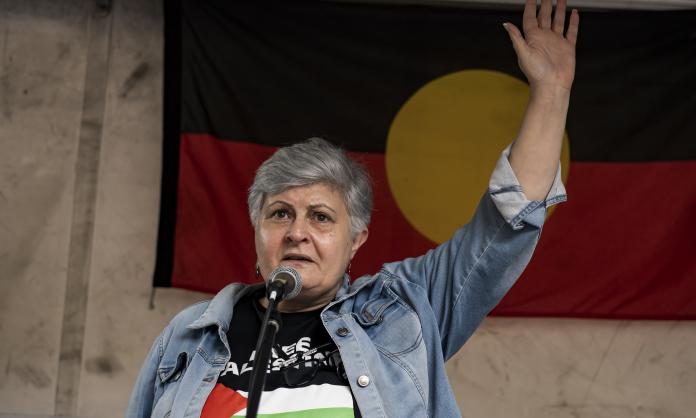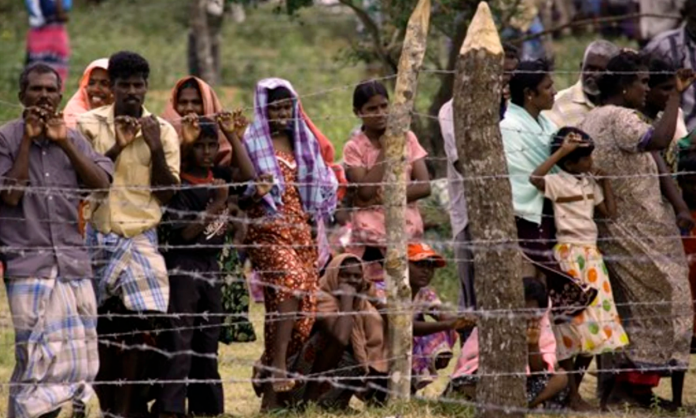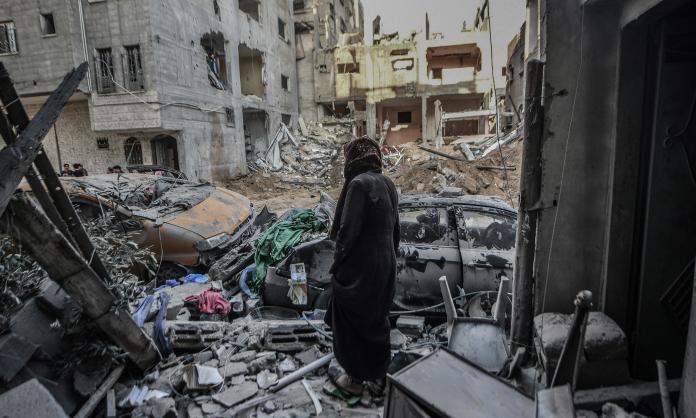Update—click here for Vic Socialists results in Dunkley.
Asked how she stays hopeful as a 63-year-old socialist and Palestinian living in the diaspora, Reem Yunis replies: “I don’t have the luxury not to be inspired. My grandparents died without seeing a liberated Palestine, my parents died and were buried in the diaspora. Most of my people are living in the diaspora, and the ones in Palestine are being robbed of water, resources and every bit of land they have. We need to have hope and fight, because if we won’t fight for a free Palestine, who will?”
Speaking to Reem, it’s obvious that the question “If not us, then who?” is central to her views on life, oppression and progress. It’s clearly, for example, behind her decision to run as the Victorian Socialists candidate in the Dunkley by-election during the worst escalation of Israeli violence against the Palestinians since 1948.
Dunkley, a federal parliamentary seat in Melbourne’s outer south-eastern suburbs, has since its establishment in 1984 regularly changed hands between Labor and the Liberals. Most recently, it was won by Labor’s Peta Murphy in 2019 and retained in 2022. Murphy died from cancer in December, and a by-election was called for Saturday, 2 March, to fill the vacant seat.
Federal by-elections are always a bit of a spectacle for the media and the political class. In the case of Dunkley, the focus is on whether Labor can revive its flagging political fortunes following setbacks like the failed Voice referendum, or conversely if it will be a further sign of a Liberal Party resurgence. The fact that this election is taking place at the same time as the genocide playing out in Gaza—a genocide that both the major parties have more or less openly supported—has largely been ignored or dismissed as irrelevant.
“The thing that pushed me to run”, Reem says, “[was] finding a platform to speak about Palestine—any way to get some coverage for Palestine and be a voice for the voiceless facing a genocidal war. We need a voice other than the Labor government and the Liberal Party, who are saying the same things they’ve always said, which is to stand by Israel, and stand by the US, and give cover to the lies. I need to have that voice. We have to fight.”
Reem’s family has a story common to the estimated 7 million Palestinians living outside historic Palestine—a story of exile. Her father’s and mother’s families both lived in the town of Beit Sahour, east of Bethlehem, for generations before the establishment of Israel. Although they remained there after the 1948 Nakba (“the catastrophe”, when hundreds of thousands of Palestinians were forced from their homes and their land by Zionist terror), they were locked out of Palestine, and into exile, during one of the many escalations of occupation and apartheid that followed—the aftermath of Israel’s victory in the 1967 Arab-Israeli War.
“I was seven years old, and we were living in Kuwait”, Reem recounts. “Israel seized Gaza and the West Bank, and my family knew they couldn’t go home any more”. Eventually, Reem made it to Australia with her husband and children after fleeing Kuwait for Jordan during the first Gulf War. Her brothers, mother and father fled to the United States. Other relatives remain in Beit Sahour, where the population is now subjected to the maze of checkpoints, segregated roads and permit systems that Israel uses to police and control Palestinians moving around the occupied West Bank.
Reem was pushed toward left-wing politics by her family’s experience of oppression and exile, as well as other dynamics in the Middle East. “I'm from the generation who became teenagers in the 1970s. I was in university between 1978 and 1982. Remember the Lebanese civil war?”, she asks.
The civil war raged between 1975 and 1990 and split the country, and much of the surrounding Arab world, along left and right political lines. Palestinian groups living in exile in Lebanon played a major role in the left-wing side of the conflict, while right-wing militias coalesced around anti-communist and anti-Arab ideologies. “Watching these things play out around you affects your thinking and makes you want to choose which side you’re on”, Reem says.
It was connecting the Palestinian cause to other events in the world around her that turned Reem into a socialist. She was at a pro-Palestine rally in Melbourne, just before Israel began its 2006 war on Lebanon, when she met a group of socialists talking about the politics of the Middle East, the Palestinian resistance and imperialism. “I was blown away that they thought the same way I did”, Reem says.
“Socialism is so important for the Palestinian question because it is capitalism that has caused this problem through imperialism. Who has helped the creation of and aided Israel, other than the imperialist powers since World War One? If you believe in the liberation of Palestine, you should be against the system that actually allowed the creation of Israel, and allowed it to continue until now on our ruins. And that means being a socialist.”
For Reem, being a socialist is also about trying to create a system of majority rule. “Australian workers, in general, are oppressed by their own system. They don’t get everything [they want], and they don’t have a say. But we are the majority of society, and oppressed people should flock together.
“I also, as a Palestinian, feel for the Indigenous people of [this] land who suffered from oppression and genocide in order for capitalism to be established here. So, it’s the one percent that is robbing Australian workers, [and] they are the same ones siding with America and Israel, and profiting from the dispossession of Indigenous people.”
Unsurprisingly, Reem has a long list of things she has protested about in addition to being a prominent activist in the Palestine solidarity movement. She marched against the US-led invasion of Iraq in 2003. She campaigned for LGBTQ rights and has joined marches for marriage equality, for refugee rights, against youth detention, for action on the climate crisis and for Indigenous rights. As a teacher for 24 years, Reem has been an active trade unionist in the Australian Education Union and has been part of every teacher’s strike in Victoria since 2001.
Pre-polling for the Dunkley by-election starts on Monday, 19 February, and polling day is Saturday, 2 March. You can help Reem’s campaign by making a donation or volunteering for a shift handing out how-to-vote cards at a polling booth.
PHOTO CREDIT: Matt Hrkac







